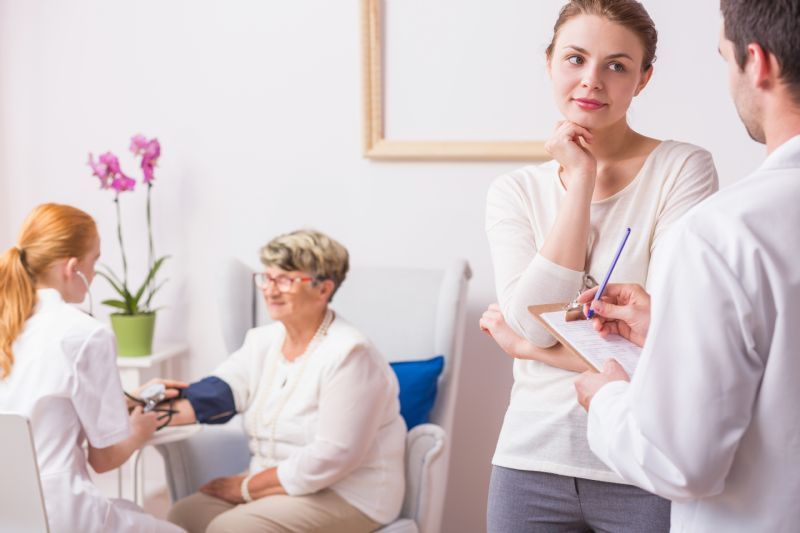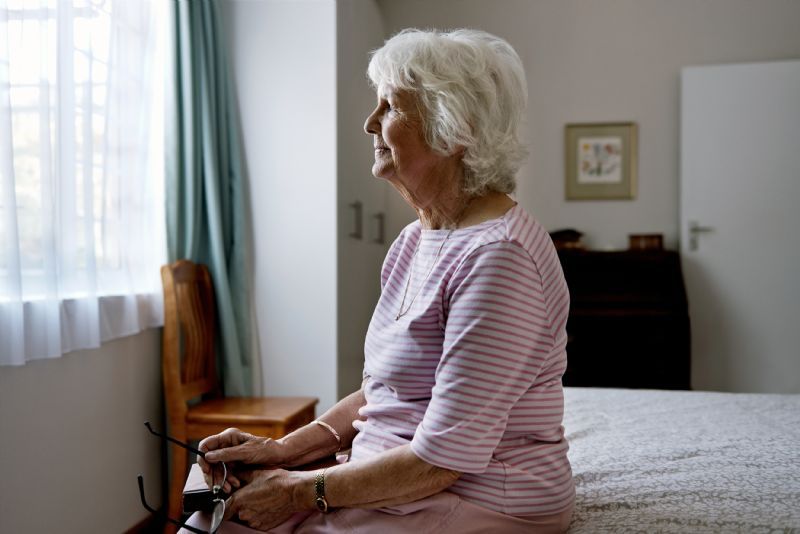 Written by Megan Smith, PT
Written by Megan Smith, PT

Every year, millions of elderly men and women suffer from a fall.
Statistically, one out of every four people aged 65+ will experience an episode of falling this year, and two-thirds of them will do so again within six months.
Falling is an event that can lead to many forms of physical affliction, but many of them go undetected. Loss of confidence, along with an untreated ailment, can damage your loved one’s ability to recover and continue living self-assured.
By staying informed of possible outcomes and knowing which questions to ask, you can partner with your loved one to create a safe space for them to heal and ensure a fall is one event they never brush up against again.
The most important thing you can do for a loved one after a falling episode is take them to see their doctor. Injury may not always be apparent, and a fall could also be indicative of an underlying illness. Rather than assume physical wholesomeness, have their body and head examined by a medical professional. By knowing exactly which injuries have been sustained (if any), you can better help in providing relief and comfort moving forward.
Advocate for your loved one; busy doctors can sometimes pass over more thorough methods, and it’s up to you to make sure your loved one is examined to both of your satisfactions.
Building and maintaining a compassionate relationship with your patient or loved one will help them to feel safer about confiding in you, and you will, in turn, have a better understanding of their physical and emotional health. Rather than feigning independence, your loved one will know they can trust you, and will be more likely to tell you their limitations. By having open, honest communication, you will be more successful at keeping them safe.
This step can be tricky. For a highly independent loved one, using assistive equipment in any way may threaten their sense of independence and cause them to refuse, even if they truly do need it. You can help bridge the divide between independence and reliance by communicating your intentions to keep them as safe as possible. The better your relationship, the easier it will be to do this.
Ultimately, the goal is to keep your loved one healthy, while letting them maintain their autonomy as much as possible. Assistive equipment isn’t removing their freedom – it is allowing them to continue living a life free of injury.
A myth about life after a fall is that an individual is less likely to experience a falling episode again. You can protect your loved one from being a statistic by taking preventative measures to make sure the episode doesn’t repeat itself.
Installing grab bars, placing non-skid mats beneath throw rugs, and producing ample light at the top and bottom of stairs are just a few things you can do to minimize risk. You can find more ideas and product solutions for managing falls and adapting living spaces here.
Many times, side effects to a medication go overlooked in pursuit of treatment for a more immediate problem. If your loved one is on any prescription medication, it’s worth looking into whether things like dizziness, nausea and light-headedness are byproducts. Ask questions about anything that could potentially complicate their ability to move, stand, or sit down. Balance and coordination are two areas that tend to deteriorate more rapidly with age. Double check that they are being given the best chance for success, and discuss options with their doctor.
Fear is a natural reaction to a painful, scary experience, and life after a fall may require a slow build to prior confidence. After losing their balance once, your loved one may be hesitant to attempt tasks they had no fear of before. While re-evaluating their capabilities, and helping them honestly assess their limitations, allowing them to become inactive is actually more dangerous. When a person is inactive, they lose muscle mass and opportunities to orient themselves by practicing balance.
Rather than insist they remain subdued, encourage them to continue participating in daily tasks. Repetition will help them to restore assurance in themselves, and will prevent motor skills from going into decline.

Re-integrating back into life after sustaining a fall requires intentionality. But with patience, kindness and the right knowledge, you can help guide your loved one into recovery while preventing such a thing from happening again.
Rehabmart.com offers a variety of tools to facilitate rehabilitation and prevent injury, particularly regarding falls. Tools such as tub transfer benches, power bath lifts, rolling mobility walkers, and bathroom commodes significantly lower the risk of balance-related injury while living and bathing, in addition to providing increased physical comfort.
Read more about power bath lifts here, and browse Rehabmart's online catalog of mobility products to select the best tool for your loved one!
>> Shop Fall Prevention <<
Megan has been a part of Rehabmart since its inception nearly 20 years ago. For the past several years she has been enjoying her role as HR Director while maintaining her Physical Therapy license. When she isn't working on her next in-service or working to find a new team member, she enjoys her five children, helping those who have PT type ailments, baking, practicing yoga, and working out.